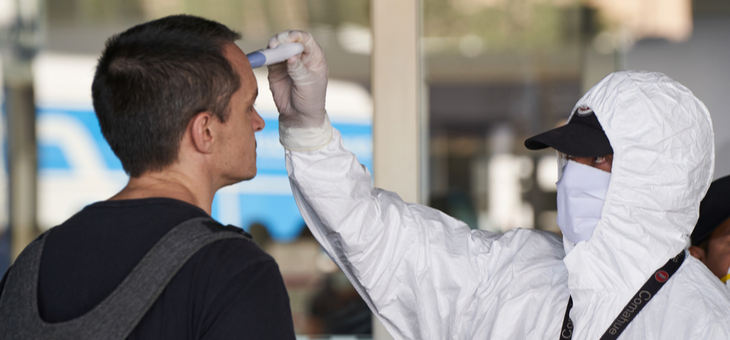The COVID-19 pandemic has seen many people willing to ignore privacy concerns to continue living life as close to normal as possible.
Australians were quick to download the government’s COVIDsafe app in huge numbers, despite very serious concerns over the use of data, proving that most people consider health a higher priority than their data.
However, the privacy concerns will be a lot more obtrusive when it comes to travelling in a post-COVID situation, with facial recognition and contract tracing apps of foreign governments perhaps causing more pause for thought.
Hong Kong requires people arriving from other countries to wear a wristband while self-isolating for two weeks. It pairs with a compulsory phone app and is designed to detect if a person has left their hotel room or house.
Poland has required people quarantining to take selfies when prompted at random times of the day – using geolocation and facial recognition software to ensure they’re complying.
If international travel is to return before a vaccine is found most countries will probably enforce the downloading of a contract-tracing app of some variety.
According to experts, the most secure contact-tracing apps use bluetooth and don’t auto-upload information to a central database.
Most of this technology, like Australia’s COVIDsafe app, has been rushed and so there are concerns about security and privacy.
An Amnesty International investigation revealed that Bahrain, Kuwait and Norway had rolled out some of the most invasive COVID-19 contact tracing apps around the world, putting the privacy and security of hundreds of thousands of people at risk.
Bahrain’s ‘BeAware Bahrain’, Kuwait’s ‘Shlonik’ and Norway’s ‘Smittestopp’ apps stood out as among the most alarming mass surveillance tools assessed by Amnesty, with all three actively carrying out live or near-live tracking of users’ locations by frequently uploading GPS coordinates to a central server.
Facial recognition programs for travellers is already a reality at some airports. Some airports in the United States use facial identification for check-in, baggage drop, security and boarding.
It is possible to opt out of these facial recognition measures, but the trick is knowing that you can ask and whether this flags you as suspicious and exposes you to further screening.
While you can currently opt out of biometric measures at some airports, when it comes to the information stored on your phone and other devices, the best advice is to pack light in a digital sense.
Paul Lipman, chief executive of cybersecurity company Bullguard, told National Geographic that it was important to think ahead about what information is able to be accessed on your device.
Mr Lipman said he recommended using devices that “contain only the data you’ll need for that trip”, especially when visiting countries where government officials have the right to access your devices.
How much of your privacy are you willing to sacrifice to go travelling again?
If you enjoy our content, don’t keep it to yourself. Share our free eNews with your friends and encourage them to sign up.
Related articles:
https://www.yourlifechoices.com.au/travel/destinations/wa-to-open-borders
https://www.yourlifechoices.com.au/travel/flying/postcovid-travel-preparation
https://www.yourlifechoices.com.au/health/covid19/extension-of-passport-expiry

